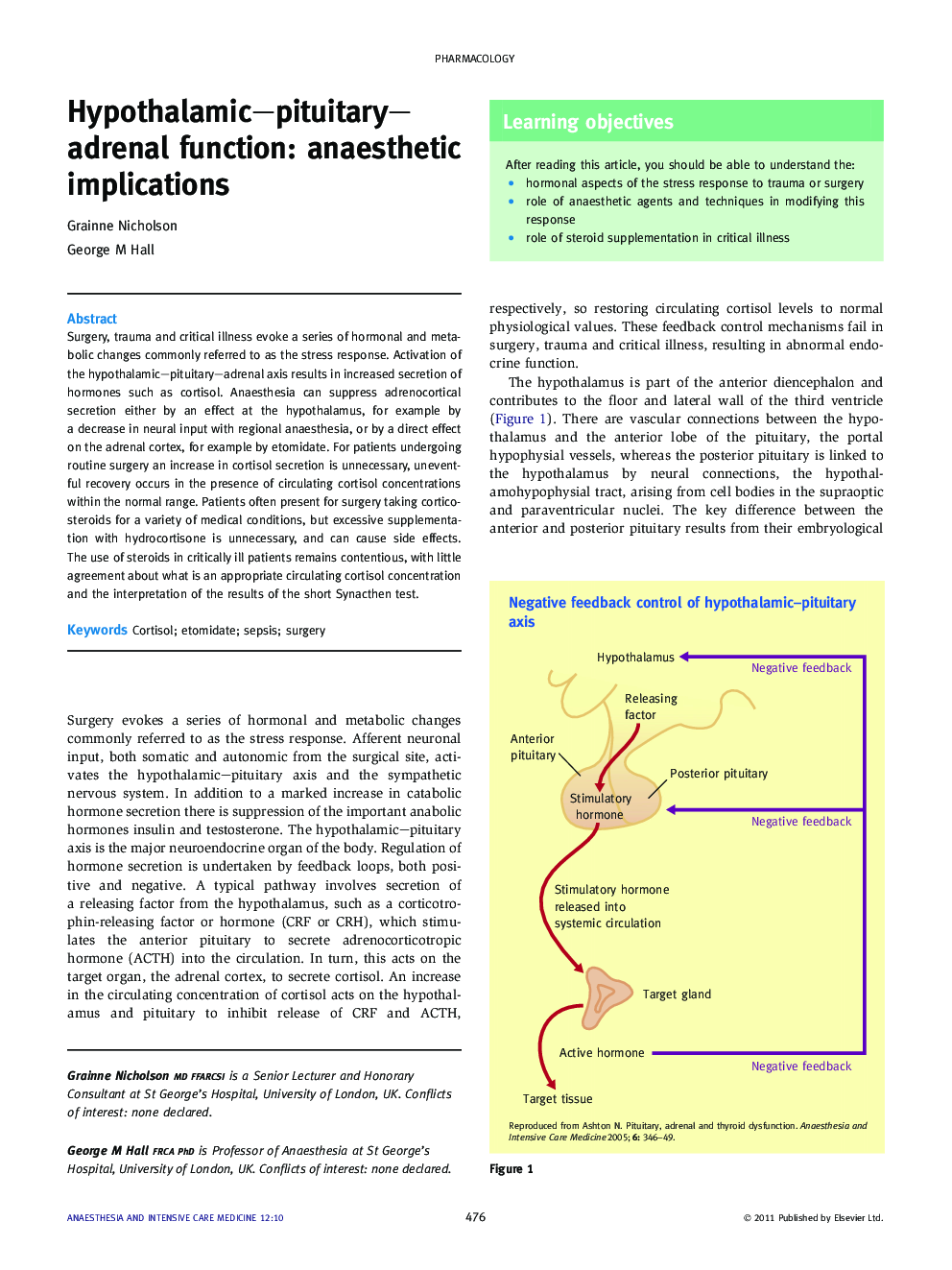| Article ID | Journal | Published Year | Pages | File Type |
|---|---|---|---|---|
| 2742849 | Anaesthesia & Intensive Care Medicine | 2011 | 4 Pages |
Surgery, trauma and critical illness evoke a series of hormonal and metabolic changes commonly referred to as the stress response. Activation of the hypothalamic–pituitary–adrenal axis results in increased secretion of hormones such as cortisol. Anaesthesia can suppress adrenocortical secretion either by an effect at the hypothalamus, for example by a decrease in neural input with regional anaesthesia, or by a direct effect on the adrenal cortex, for example by etomidate. For patients undergoing routine surgery an increase in cortisol secretion is unnecessary, uneventful recovery occurs in the presence of circulating cortisol concentrations within the normal range. Patients often present for surgery taking corticosteroids for a variety of medical conditions, but excessive supplementation with hydrocortisone is unnecessary, and can cause side effects. The use of steroids in critically ill patients remains contentious, with little agreement about what is an appropriate circulating cortisol concentration and the interpretation of the results of the short Synacthen test.
